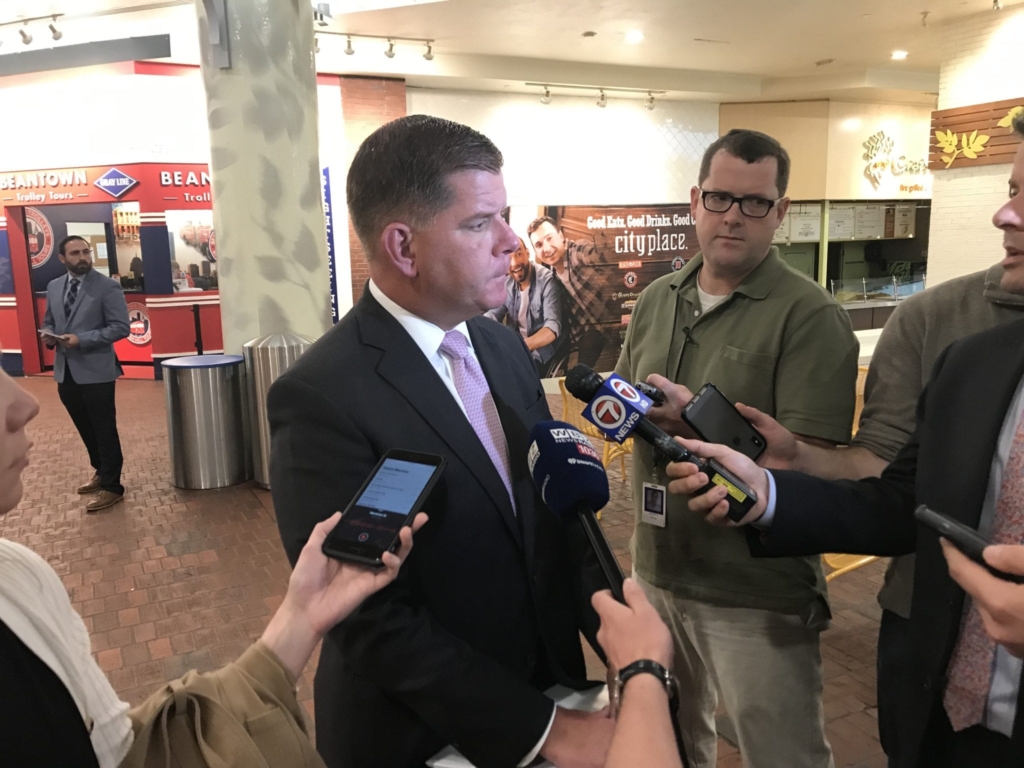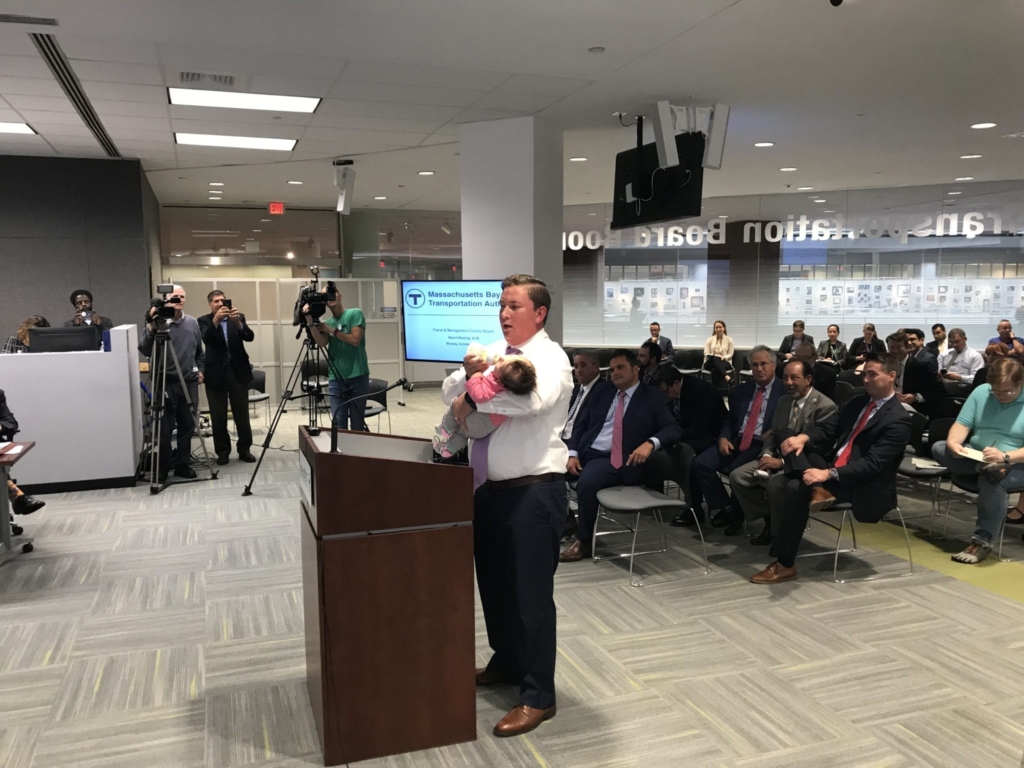T notes: Red Line ridership slow to recover
Mayors launch push for commuter rail pilots

RED LINE SERVICE is back to normal in the wake of the June 11 derailment at the JFK/UMass Station, but ridership still hasn’t fully recovered.
Data released on Monday indicate Red Line ridership overall was off 5 percent during the summer compared to last year and was down 2.5 percent in September.
Charts released by the T at Monday’s Fiscal and Management Control Board indicated daily Red Line ridership occasionally topped 200,000 in September for the first time since the derailment. The previous September, however, ridership appeared to top 200,000 every day, according to the charts.
Ridership was off far more in South Boston, Quincy, Braintree, and Dorchester than it was in Cambridge, Somerville, and downtown Boston. Ridership declined nearly 12 percent in Quincy and Braintree from June to August compared to last year, and 9.3 percent in Dorchester. Passenger traffic at the Quincy, Braintree, and Dorchester stations improved in September but was still down about 3.3 percent compared to last year.
Mayors launch push for commuter rail pilots
The mayors of Boston, Lynn, and Everett pressed MBTA officials on Monday to approve pilot projects that would upgrade commuter rail service in their communities.

Boston Mayor Marty Walsh meets with reporters prior to his first appearance at a meeting of the Fiscal and Management Control Board. (Photo by Bruce Mohl)
Boston Mayor Marty Walsh urged the Fiscal and Management Control Board to pilot three inbound and five outbound trips on the Fairmount Line, which runs between South Station and Readville. The proposal would provide better morning service for workers employed at Newmarket and better morning and afternoon connections for Boston Public School students. There would also be later connections for late shift workers and people attending sports and cultural events at night.
The Fairmount Line serves minority communities in Roxbury and Dorchester and the mayor said one-fifth of the city’s residents live near its stations. Peak period trains currently run 45 minutes apart, and the pilot is designed to provide more frequent service. “They need and deserve better service,” Walsh said of people living in neighborhoods near the line.

Rep. Dan Cullinane holds his baby daughter while testifying before the Fiscal and Management Control Board. (Photo by Bruce Mohl)
Rep. Dan Cullinane of Dorchester, holding his baby daughter while he testified, said the commuter rail trains should accept Charlie Cards.
Lynn Mayor Tom McGee and Everett Mayor Carlo DeMaria are pushing for a commuter rail pilot that would offer stops at the Central Square and River Works stations in Lynn, as well as stations in Chelsea, Revere, and Everett. The officials said commuter rail fares are too expensive for many of their constituents, and pushed for subway-like fares in their communities.
McGee said he came into Boston Monday morning by driving to the Wonderland Blue Line station. He said the parking facility there was full, so he parked on the street and paid $2.40 to come into Boston rather than the $7 one-way fare on commuter rail. “A $7 one-way fare does not work,” he said.
Power needs putting more cost pressures on the T
The T’s infrastructure for delivering electricity to its vehicles is antiquated and much of it needs to be upgraded or replaced, according to Eric Stoothoff, the transit authority’s chief engineer.
He provided an overview of the system for the Fiscal and Management Control Board on Monday, and estimated the cost to upgrade the system would exceed $1 billion. He said only $200 million is included in the current five-year capital spending plan.
The T uses an enormous amount of electricity each day – an estimated 48 megawatts on a regular day. Stoothoff said the shift to electric buses and possibly electrified commuter rail would drive those usage levels much higher. He said the power needed to recharge 200 electric battery buses would be 13 to 15 megawatts a day. The T, which is experimenting with electric bus technology, currently has about 1,000 buses in its fleet.




